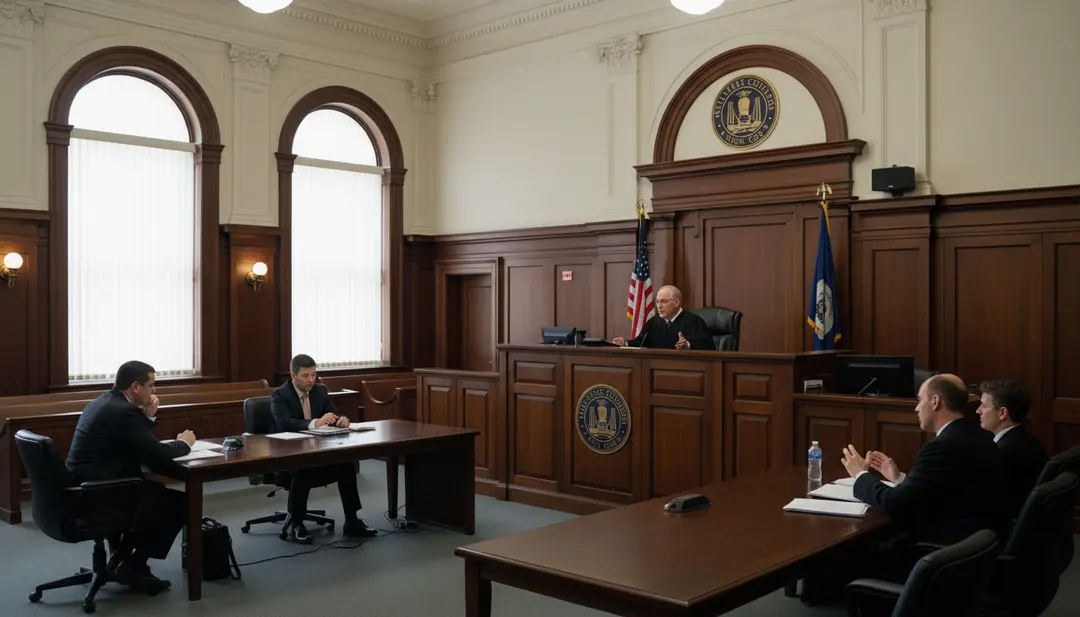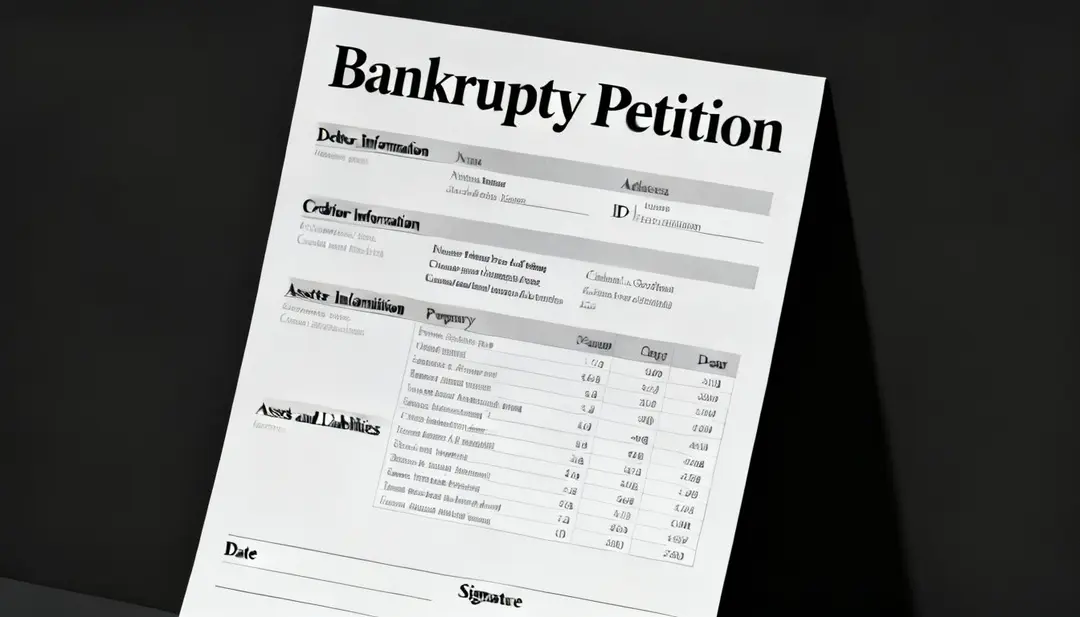Consequences of Breaking HOA Rules in Arizona: Fines for Landscaping Violations Explained [2025 Guide]
Breaking HOA rules in Arizona can lead to a series of real consequences, especially when it comes to fines for landscaping violations. For HOA leaders, knowing exactly what happens when rules are not followed is essential. Proper enforcement matters because it protects property values, keeps communities looking their best, and ensures everyone is treated fairly.
When landscaping rules are ignored, HOAs usually start with a written notice. If the violation isn’t fixed, fines may be imposed—and those penalties can quickly add up. In many cases, repeated violations can even spark legal disputes. Understanding these steps sets you up to avoid bigger issues and helps you make decisions that benefit your whole association.
If you’re managing an HOA, you need the right legal guidance to handle these situations confidently. As a leading Arizona HOA Attorney, the team at Halk, Oetinger, and Brown has guided hundreds of boards through enforcement, assessment collection, and even litigation. We understand the specific steps needed when imposing fines for landscaping violations and back your board with clear, fixed-fee legal support. If you want to learn more about how the fine process works and what your next steps should be, review this Arizona HOA fines guide.
With help from an experienced Phoenix HOA Lawyer or Tucson HOA Attorney, you can foster compliance while keeping your community running smoothly and free from unnecessary disputes.
Common Types of HOA Rules in Arizona
No homeowners association operates without a clear set of rules. In Arizona, HOAs rely on these guidelines to keep neighborhoods attractive, safe, and consistent for everyone. If you’re a board member or manage association operations, understanding the typical rules enforced across Arizona HOAs helps you spot violations quickly and maintain your community’s standards. Here’s a look at the most common types you’ll encounter—and why breaking them can lead to fines for landscaping violations or other penalties.
Landscaping and Property Maintenance Rules
HOA boards often prioritize landscaping standards. These rules cover lawn care, weed control, tree trimming, and guidelines for visible property improvements. The goal is simple: maintain curb appeal and help everyone’s property value hold steady. If a yard falls into disrepair, an HOA is authorized to give written warnings and, if needed, impose penalties. With water conservation in sharp focus statewide, many Arizona communities also regulate artificial turf or drought-resistant plants.
- Keep lawns and planters tidy
- Weed and debris removal required
- Approval needed for any new landscaping projects
Consistent enforcement is key, which is why having a Phoenix HOA Lawyer or Tucson HOA Attorney on call can help your board act with confidence, especially as changes in state law affect your options. For more on the legal tools associations can use, check out this guide to Arizona HOA Laws Overview.
Architectural and Exterior Appearance Guidelines
Most Arizona HOAs oversee the look of homes, from paint colors to the style of roof tiles. Architectural control maintains the community’s appeal and stops any changes that clash with the neighborhood’s style. Homeowners often need written approval for new fences, decks, or home additions.
- Paint color lists and finish requirements
- Roof, window, or siding material standards
- Rules about external structures like sheds or pergolas
If you skip approval or ignore these rules, your association may start with a warning, followed by fines or demands to reverse unapproved changes.
Parking and Vehicle Restrictions
Parking rules keep streets clear and safe while preventing overcrowding. These can include limits on street parking, RV or boat storage, and commercial vehicle restrictions. Well-written parking rules encourage fairness, but enforcing them requires a reliable system—and sometimes legal support.
- No long-term street parking
- Garage use requirements
- Limits on where guests may park
When repeated violations pile up, they can escalate to formal action. For help setting up enforceable policies, working with an Arizona HOA Attorney can save you frustration.
Use of Common Areas and Amenities
HOAs manage pools, parks, clubhouses, and gyms. Each amenity comes with its own set of rules to preserve safety and enjoyment. Residents may need to reserve spaces, limit guest usage, or follow posted hours. If rules are broken, amenity access can be suspended or restricted—sometimes alongside formal fines for repeat offenders.
Noise and Nuisance Regulations
Peaceful living is a cornerstone of community life. Noise standards cover late-night parties, barking dogs, or construction work at odd hours. Some associations even regulate holiday lights or outdoor décor. These rules are written into the HOA’s governing documents and enforced to shield neighbors from constant disruptions.
- Quiet hours for landscaping equipment
- Restrictions on loud music or excessive gatherings
- Light pollution limits for exterior decorations
Pet Restrictions and Animal Policies
Arizona neighborhoods often have pet policies to keep things harmonious. HOAs can set limits on the number of pets, require leashes, and restrict certain breeds or exotic animals. Rules may also detail how residents clean up after their animals or handle nuisance complaints.
When you understand and consistently apply these HOA rules, you protect the quality of life for every resident. Remember, each association’s rules are detailed in official governing documents. You can find insight on enforcing them in the article on Arizona HOA board covenant enforcement.
If you need help applying community rules the right way—or handling fines for landscaping violations—reaching out to the attorneys at Halk, Oetinger, and Brown is a good next step. Their flat-fee general counsel services deliver responsive support to HOA leaders across Arizona.
Enforcement and Fines for Landscaping Violations
When someone breaks landscaping rules in an Arizona HOA, the process doesn't stop at a simple notice. Fines for landscaping violations serve both as a wake-up call and a tool to ensure the neighborhood remains in top shape. To do this the right way, HOAs must follow a clear, fair process that lines up with Arizona law. This section covers exactly how these fines are put in place, what reasonable enforcement looks like, and real-life examples you need to watch for as an HOA board member or manager.
How Fines Are Assessed
Arizona HOAs have the right to issue fines, but those fines aren't set on a whim. The Arizona Planned Community Act and association CC&Rs outline strict steps all boards must follow:
- Notice is required: Each homeowner must get a written notice describing the landscaping violation. This gives residents a chance to fix the problem before a fine is issued.
- Opportunity to respond: Arizona law (A.R.S. § 33-1803) guarantees owners a chance to contest or explain the violation at a hearing before the board can proceed.
- Fines must be reasonable: The fine amount must be outlined in the CC&Rs or approved rules, and should reflect the severity of the violation. Arizona HOAs cannot impose fines that are excessive or out of proportion to the offense.
- Due process matters: Boards must document each step, from notices to hearing minutes, to support that procedures were followed.
If an HOA pushes excessive fines or skips steps, those fines can be challenged, sometimes resulting in legal disputes or reversal. Fairness not only helps you avoid conflict, it builds trust and cooperation across your community.
For a look at how various compliance issues can complicate HOA life, see the article on navigating HOA compliance challenges.
Examples of Landscaping Violations and Fines
Arizona HOAs enforce landscaping rules to protect both property values and your neighborhood's reputation. Some of the most common violations include:
- Overgrown lawns or weeds: Unkempt grass or excessive weeds can lead to written warnings, followed by fines. Typically, HOAs start with a warning and escalate penalties if corrections aren't made. Fines can range from $25 for a first offense to $100 or more for repeated issues.
- Unapproved plantings or modifications: Planting non-permitted trees, shrubs, or installing artificial turf without written approval is a frequent violation. The fine is often comparable to other violations but could increase if repeated.
- Dead or neglected trees and shrubs: Dead plants are usually considered a violation if they aren’t replaced promptly, especially if the HOA’s design standards require vibrant and healthy landscaping.
- Obstructed sidewalks or common areas: Landscaping that blocks pathways or encroaches on shared spaces can trigger both safety concerns and fines.
Reasonable fines should be clear and consistent, never arbitrary or vengeful. For example, charging several hundreds of dollars for a few weeds, or escalating fines daily without fair warning, can be seen as overreach and is more likely to face a challenge from residents or even the courts.
Board members need to steer clear of personal bias and always document everything. Consistency and transparency in enforcement set a positive example and protect your HOA from legal headaches down the road. Understanding how local regulations affect Arizona HOAs is also key for anyone managing enforcement decisions.
As you consider your enforcement strategy, working with an experienced Arizona HOA Attorney—like the team at Halk, Oetinger, and Brown—can help you fine-tune your process and minimize disputes. A Phoenix HOA Lawyer or Tucson HOA Attorney brings local insight to make sure your association follows best practices and avoids costly mistakes.
This attention to detail doesn't just keep the grass greener, it protects your association from both resident complaints and bigger legal challenges related to fines for landscaping violations.
Additional Penalties and Escalating Consequences
Besides the initial fines for landscaping violations, breaking HOA rules in Arizona can trigger a series of serious penalties that don’t stop with a warning letter. When fines are ignored or refused, consequences ramp up quickly. HOAs have tools beyond fines to collect due payments, and both boards and homeowners face real risks if disputes spiral out of control. Here’s what you need to know as a board member or community manager to protect your association and maintain trust.
Collections and Liens
Ignoring fines for landscaping violations is not the end of the story. In Arizona, if a homeowner continues to avoid payments, the HOA can start collections, which might include extra fees and professional collection efforts. When these efforts fail, the HOA’s next step is often placing a lien against the property.
A lien is a public record claim that gives the HOA legal rights to the property until debts are paid. For communities, this is a powerful way to signal the seriousness of overdue fines and assessments. It’s not just theory—liens can block the sale or refinance of a property, disrupting an owner’s financial plans. If the debt remains unpaid, Arizona law can allow the HOA to pursue foreclosure on the property, a last-resort action that may result in the homeowner losing their home.
Here’s how the process often unfolds:
- Friendly and formal letters requesting payment
- Additional fees for late or unpaid amounts
- Filing and recording a lien on the property
- Legal steps up to and including foreclosure if the debt is not resolved
This isn’t just paperwork. With recent changes in Arizona law, assessment collection rules now come with extra protections and procedures—review the assessment payments guide for HOAs to see details on managing HOA assessment payments in Arizona, and how collections and liens affect both parties.
Working with an experienced Arizona HOA Attorney, such as a Phoenix HOA Lawyer or Tucson HOA Attorney, is essential when starting collection actions. They can ensure that board members follow the right steps, document every action, and avoid costly legal mistakes.
Legal Disputes and Litigation Risks
If collection efforts and escalating fines don’t end the dispute, you may find yourself facing legal action. Disagreements over fines for landscaping violations can sometimes prompt lawsuits, either from the HOA to recover unpaid fines or from homeowners challenging enforcement as unfair or unlawful.
Lawsuits can drain both community funds and goodwill. HOAs risk legal fees, bad publicity, and even court-ordered penalties if a judge finds their actions out of step with Arizona statutes or their own documents. For homeowners, ignoring HOA legal notices often puts their finances and property at risk, especially when court decisions can include hefty judgments, wage garnishments, or loss of property rights.
To limit these risks, many successful associations use a clear communications process:
- Detailed notice of violations and potential penalties
- Multiple documented attempts to resolve issues informally
- Formal hearing opportunities for the homeowner
- Careful review of every action for compliance with the law
You can learn about the most common sources of HOA lawsuits in Arizona and how to prepare your board by reviewing the Common HOA Litigation Issues in Arizona resource. Being proactive and transparent with enforcement minimizes risk for everyone.
Engaging with a knowledgeable Arizona HOA Attorney—whether you’re in Phoenix or Tucson—gives you assurance that all your bases are covered. At Halk, Oetinger, and Brown, our attorneys focus on preventing lawsuits through flat-rate legal counsel, clear advice, and strong assessment and collection services that keep your HOA protected while building trust in your community.
Staying ahead of escalating penalties and legal risks not only protects your association—it also helps keep your neighborhood a well-maintained, harmonious place to live.
Dispute Resolution and Homeowner Rights
Disagreements are part of any community, and Arizona HOAs are no exception. When a board imposes fines for landscaping violations or other rule breaches, the process doesn’t end with the bill. Homeowners have clear rights—both to challenge decisions and to seek fair, respectful resolution through formal channels. Understanding your role and knowing the options available helps you keep the focus on solutions, rather than letting conflict push neighbors apart.
Appealing HOA Fines and Penalties
If a homeowner receives a fine for a landscaping violation, the board must follow a fair and transparent process. Timely, accurate communication is key. Each resident has the right to receive a written notice detailing the nature of the violation, the specific rule broken, and the amount of the fine. This notice should include instructions for how to contest the penalty.
Best practices for appeals include:
- Providing clear notice: Make sure every notice includes not only the details of the offense, but also the procedure for requesting a hearing before the board.
- Offering a fair opportunity to be heard: Arizona law grants homeowners the right to a hearing. Boards should schedule these promptly and listen to all sides, maintaining a neutral and respectful environment.
- Documenting every step: Keep records of notices, communications, and decisions. This not only meets legal requirements, but also builds trust within your community.
If the board upholds the fine, homeowners still have options, such as paying under protest or escalating the dispute. Detailed documentation protects both sides and ensures that disagreement doesn’t turn into unnecessary litigation or bitterness.
For more insight on how landscaping affects fines and penalties in HOAs, take a look at Landscaping and Property Values in Arizona HOAs. This resource explains how maintaining standards is about much more than appearances—it ties directly to the value and harmony of your neighborhood.
Mediation and Arizona State Complaint Process
Not every dispute needs to end up in court or drag on for months. Arizona offers alternative paths to resolve HOA conflicts, especially those involving fines for landscaping violations. Mediation is one of the most effective tools available. In a mediation session, a neutral third party guides both the homeowner and the HOA board in reaching a solution. Unlike a court ruling, the focus here is on collaboration and compromise, which often preserves relationships within the community.
Mediation benefits include:
- Lower costs compared to litigation
- Faster resolution of disputes
- A supportive environment for both sides to have their say
Arizona homeowners and HOAs also have access to the Arizona Department of Real Estate’s HOA dispute process. This formal avenue enables residents to file a petition and have their case reviewed by an administrative law judge, providing a clear, state-sanctioned path for resolving difficult disagreements.
Often, using mediation or the state complaint process helps restore trust after enforcement actions. Both methods show your board’s willingness to treat homeowners fairly, listen to concerns, and keep the lines of communication open—key for long-term community stability.
If disputes ever involve issues with collection or assessment, or if you need help with structured negotiation outside court, it's helpful to review the Arizona HOA Assessment Collection Process. This resource can clarify next steps if fines remain unpaid and offers solutions grounded in Arizona law.
Relying on an experienced Arizona HOA Attorney—whether you work with a Phoenix HOA Lawyer or Tucson HOA Attorney—ensures your community always has the right guidance in managing disputes, upholding rights, and maintaining peace. By combining strong policies with fair processes, your HOA can resolve issues over fines for landscaping violations with professionalism and care.
Working With an Arizona HOA Attorney
Partnering with an experienced Arizona HOA Attorney is one of the smartest steps your board can take to ensure rule enforcement is fair, compliant, and efficient. Relying on skilled legal guidance helps you avoid pitfalls that often lead to expensive disputes or loss of community trust. When it comes to fines for landscaping violations or any breach of HOA rules, a legal ally brings the confidence and clarity your team needs to stay focused on community health.
Preventive Legal Guidance for HOA Boards
Preventive legal guidance is your strongest shield against costly mistakes in rule enforcement or dispute handling. When your board has access to an Arizona HOA Attorney, you gain more than just advice—you benefit from a proactive system that addresses problems before they grow.
Attorneys well-versed in HOA law, such as a Phoenix HOA Lawyer or Tucson HOA Attorney, guide your board through:
- Reviewing and updating rules to match current Arizona statutes and your community’s evolving needs
- Drafting clear violation and fine policies that are easy to understand and apply consistently
- Evaluating complaint or violation notices for fairness and legal soundness
- Helping the board hold fair hearings so every homeowner is given a real chance to respond
A flat-rate general counsel model, like the one provided by Halk, Oetinger, and Brown, gives you predictable access to these legal services. This approach keeps legal costs in check and frees your board to focus on maintaining property values and community appearance.
Rather than react to disputes, you can work with legal counsel to set up internal checks, transparent communication processes, and thorough documentation from the start. When issues arise—like fines for landscaping violations—a Tucson HOA Attorney with local experience knows how to address the matter efficiently while respecting homeowner rights.
This attention to process not only protects your HOA from potential litigation, but also builds trust among residents. Proactive legal support empowers your board to handle even the most contentious situations, such as appeals or non-payment, with clarity and professionalism.
For more details on how legal partnership can improve both assessment collection and overall community management, see how you can improve HOA assessment collections through expert legal strategies. This resource will help you see why ongoing legal counsel is an investment in your association’s stability and future.
Frequently Asked Questions about HOA Rule Violations in Arizona
Fines for landscaping violations are a frequent concern for Arizona HOAs, and many board members face questions about how penalties are handled and what rights homeowners have. If you're trying to maintain strong community standards while also protecting your association from disputes, knowing the details of Arizona HOA rules and statute-backed procedures is important. Here you’ll find clear, straightforward answers to some of the most common questions about rule violations, fines, and your legal options.
What counts as a landscaping violation under Arizona HOA rules?
A landscaping violation in an Arizona HOA generally means failing to follow your community's guidelines for the upkeep or alteration of your property’s exterior. These rules are designed to keep neighborhoods attractive and protect everyone’s property values. Most associations outline specific requirements in their CC&Rs. Examples of common landscaping violations include:
- Letting your grass grow too long or failing to mow regularly
- Leaving weeds, debris, or dead plants visible from the street
- Removing or planting trees, shrubs, or hedges without prior approval from the board
- Installing artificial turf or hardscape features (such as rocks or pavers) without permission
- Creating drainage issues or obstructing sidewalks with plants
- Failing to repair irrigation systems, resulting in dying or neglected landscaping
Some associations are especially strict about front yards, while others extend rules to backyard spaces visible to neighbors. Special restrictions, like water conservation or approved plant lists, may also apply. Not sure what your HOA requires? Review your community’s guidelines and ask your board for clarification before making changes. You'll avoid headaches and possible penalties later on.
For guidance on how rules are enforced across Arizona, the Arizona HOA landscaping fines guide breaks down what to watch for and why careful record-keeping matters.
How much can my HOA fine me for landscaping violations?
Arizona law requires that fines for landscaping violations be “reasonable” and set out in your association's governing documents. There’s no statewide maximum, but fines must not be extreme or unconnected to the underlying violation. Instead, most HOAs publish a fine schedule, often starting small (for example, $25 or $50 for a first violation) but increasing with each repeat offense or if the problem continues.
The key points:
- Fines must match what’s listed in the CC&Rs or written rules
- Boards must give written notice and a chance to cure before imposing a fine
- Increases for repeat violations must also be outlined in the rules
- “Reasonableness” is determined by the severity and frequency of the violation
Arizona courts can and do overturn excessive or punitive fines. That’s why it’s important for boards to follow clear procedures and for homeowners to challenge any fines they think are unfair. Find specific examples and standard enforcement protocols in the article on improving compliance with HOA rules.
Can an HOA foreclose on my home over unpaid fines?
Arizona HOAs have significant collection rights, but foreclosure is reserved for more serious debts. Unpaid fines for landscaping violations are added to your balance, and if ignored, may result in liens being placed on your property. Under Arizona law, an HOA can start foreclosure proceedings if the total debt (including fines, late charges, and attorneys’ fees) remains unpaid for a set period and usually reaches a minimum threshold.
Key facts:
- Unpaid fines may result in liens against your property
- Ongoing delinquency, especially when combined with unpaid assessments, can lead to foreclosure actions
- Foreclosure is considered a last resort, but it is possible under the Arizona Planned Community Act and Condominium Act
If your HOA takes collection steps, it’s wise to act quickly and reach out to an Arizona HOA Attorney. Prompt payments or negotiation can stop the process before it escalates. To understand more about liens and collections, see tips from seasoned attorneys on assessment collection services.
Do I have the right to challenge or appeal an HOA fine?
Arizona law protects your right to challenge fines, including those for landscaping violations. HOAs must provide homeowners with written notice describing the violation and the opportunity to request a hearing before the board. This due process ensures you have a chance to present your side and correct any misunderstandings.
What to expect:
- Receive a formal notice of the violation and fine
- Ask in writing for a hearing if you dispute the fine
- Attend the hearing, share your case, and bring documentation or photos
- The board votes and provides a written decision
Any fines issued without this process can be contested, and you may escalate unresolved disputes to mediation or the Arizona Department of Real Estate’s HOA complaint process. If you aren’t sure whether your HOA followed the law correctly, a Phoenix HOA Lawyer or Tucson HOA Attorney can review your case and offer specific advice.
What can an Arizona HOA attorney do for my association regarding fines?
Working with an Arizona HOA Attorney brings confidence and clarity to your enforcement process. Attorneys like those at Halk, Oetinger, and Brown help you:
- Write and review fine schedules and violation procedures to make sure they’re compliant with state law
- Train board members on consistent, fair rule enforcement and documentation
- Handle hearing requests and appeals, keeping everything by the book
- Manage communication with residents and resolve disputes before they escalate
- Oversee collection activities, including liens and assessment recovery, while minimizing legal risk to your association
By using a flat-rate general counsel model, you can get experienced legal support for a predictable cost. For more details about how skilled attorneys help communities preserve harmony and avoid legal trouble, view the Arizona HOA transparency guide.
How can I avoid disputes and penalties with my HOA in Arizona?
Most conflicts over fines for landscaping violations can be prevented by staying proactive, informed, and communicative. Simple steps make a big difference:
- Review your HOA’s CC&Rs and rules regularly so you understand requirements
- Reach out to your board or property manager before making changes to your yard
- Address notices or warnings as soon as you get them—don’t ignore them
- If confused or concerned, talk to your HOA at meetings or in writing
- Document all communications and keep receipts for repairs or improvements
Open, honest communication is your strongest tool in avoiding disputes. When you approach your HOA with good faith and timely responses, you show respect for community rules and encourage fairness in return. Consistent board enforcement matters, too—check out these tips for following HOA regulations to discover strategies for both leaders and residents to keep peace in the neighborhood.
Working together—board members, residents, and trusted counsel like a Phoenix HOA Lawyer or Tucson HOA Attorney—creates a community where fines for landscaping violations are rare and easily resolved.
Conclusion
Understanding the real consequences of breaking HOA rules in Arizona secures both your community’s value and its peace. When fines for landscaping violations or other rule breaches are handled with clarity and fairness, you protect the reputation and legal standing of your association. Consistent enforcement—supported by strong procedures and written documents—reduces confusion and keeps disputes from escalating into costly legal battles.
With the guidance of an Arizona HOA Attorney, Phoenix HOA Lawyer, or Tucson HOA Attorney, you make every decision with confidence. At Halk, Oetinger, and Brown, you gain a partner focused on efficient solutions, transparent costs, and methods that help your association avoid common mistakes. This approach frees your board to concentrate on lasting improvements instead of distractions.
Now is the time to review your enforcement processes, keep communication channels open, and use trusted resources like the Arizona HOA template guide to make your community stronger. Thank you for your commitment to responsible HOA leadership—by staying informed, you help Arizona’s neighborhoods become better places for all.













